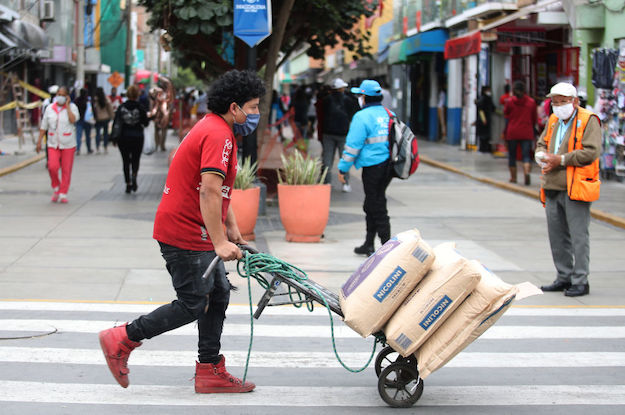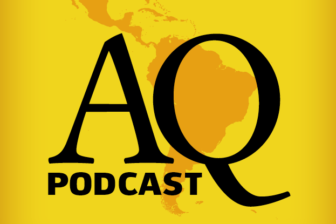On multiple fronts, data-driven policymaking has informed and improved Latin America’s response to COVID-19 – from information about the availability of hospital beds and ventilators to economic measurements to help direct relief packages for businesses and workers.
Once the immediate crisis subsides, this same approach – a reliance on data and technical expertise to set priorities and address urgent issues – should be applied to persistent challenges facing the region. With the region’s economies set to shrink by up by 9.1% this year, according to the ECLAC, there is simply no more room for inefficient policymaking.
Three of the most urgent areas in need of attention are labor informality, taxes and security policy. In each, better data and technical – rather than political – solutions would make for better outcomes.
Start with informality. Over 140 million Latin Americans, 55% of the working-age population according to the World Economic Forum, do not have a labor contract or formal job. That means that during the pandemic 140 million people and their families had to manage without access to protections that might have been made more easily available to formal workers.
Informality affects the most vulnerable groups. But we already have some ideas about how to bring more people into the formal economy. Directing social support to the people who need it most is a start, and here the distribution of COVID-related subsidies suggests that governments are indeed capable of identifying and reaching those in need.
Reducing informality will require buy-in from employers and workers alike. More needs to be done to understand what steps – from simplifying tax regimes to calibrating minimum wage and social support schemes – will most encourage people to join the formal economy or hire formal workers. One thing that is already clear is that solving the conundrum will entail more continual job training programs and more flexibility in the region’s job markets.
The next urgent area of need is in tax policy. Governments need to build capacity to fund transformations in infrastructure, public health and social security, and revenues and taxes are a key part of that equation. But the average tax to GDP ratio across Latin America and the Caribbean is 11.4 percentage points lower than the OECD average. And that regional average (23.1%) hides the reality that several countries have tax averages as low as 11%-14%.
For Latin Americans to agree on the need to increase taxes as a measure to promote well-being, some degree of political consensus needs to be reached. Governments could help reach that consensus by showing clearly their revenue targets and what types of programs that revenue would help fund. Transparency on the whole process is imperative.
The third area that needs to be addressed is crime and violence. Latin America accounts for 8% of the global population, but 33% of the world’s homicides. Just four countries (Brazil, Colombia, Mexico and Venezuela) account for one-fourth of the murders on Earth, according to a report by Igarapé Institute.
Studies have shown time and again how smart data gathering is key to better policing and reducing crime and violence. Being able to pinpoint exactly where and under what conditions crime is most likely to occur is the most efficient way to allocate resources. There are examples of this hot spot policing in the region, but those efforts should be expanded.
Some countries are looking to address these issues through dialogue. Argentina has convened the Economic and Social Council, with the objective of designing long-term policies. Chile and Panama have convened constitutional reform processes that their citizens have long demanded, though the pandemic has delayed them.
Dialogue processes can be powerful tools to bring different perspectives to decision making. But privileges that have historically permeated decision-making processes cannot play a role this time. Health, social and economic data needs to be at the forefront – not the influence of friends and political supporters pushing for decisions that may lead to their privileged interest groups getting the better end over the vulnerable COVID-19 began as a public health challenge, but it is fast becoming a humanitarian and development crisis.
If the region is not careful, the pandemic could spark a new wave of political unrest that the region can’t afford now. Given widespread distrust in government, the ability to implement policies and sustain them rests on the formation of a new social contract, one in which society can understand everyone’s role and the stakes involved. That will require sacrifice from everyone – and widespread faith that those sacrifices will bear fruit.






